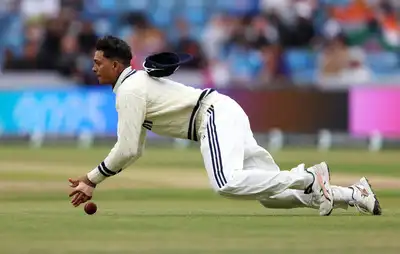Dengue fever, a viral infection transmitted by the Aedes aegypti mosquito, poses a significant health challenge, particularly in India, which accounts for a substantial portion of the 100–400 million global infections. As the monsoon season approaches, bringing with it a surge in cases, there is renewed hope. The nation's first dengue vaccine is nearing the end of its testing phase, with Phase 3 trial enrollment almost finalized.

Dengue fever, spread by Aedes mosquitoes, is characterized by high fever, intense headaches, joint and muscle pain, and a potentially dangerous drop in blood platelet count. In severe instances, the disease can progress to bleeding, organ failure, and even death. Children and the elderly are particularly vulnerable.
Developing a safe and effective dengue vaccine has been a long-standing challenge for scientists. The complexity arises from the existence of four distinct dengue virus types. An effective vaccine must provide protection against all four serotypes. While some vaccines developed in other countries have shown promise, they have not achieved widespread use.
The Serum Institute of India (SII) is at the forefront of developing India’s first dengue vaccine, named TetraVax-DV. This vaccine is engineered to protect against all four dengue virus types. Similar to other vaccines, it employs a weakened form of the virus to stimulate the body's immune system to combat dengue. Since TetraVax-DV does not contain a live virus, it cannot cause the disease itself.
Before any vaccine can be approved for public use, it must undergo several phases of testing:
Phase 3 is critical because it demonstrates whether the vaccine can effectively prevent dengue within a community.
The Phase 3 trial for India’s dengue vaccine commenced in 2023. The trial is being conducted at over 20 locations nationwide, encompassing both urban and rural settings. The goal is to enroll more than 10,000 volunteers, including children and adults from diverse backgrounds. Enrollment is nearing completion, and preliminary results are encouraging.

India faces a high burden of dengue cases, placing a strain on hospitals and causing distress for families. A safe and effective vaccine has the potential to:
While the dengue vaccine holds immense promise, preventative measures remain crucial. These include protecting oneself from mosquito bites through the use of repellents and appropriate clothing, eliminating mosquito breeding grounds by covering drains, and preventing the accumulation of stagnant water.
The Indian Council of Medical Research (ICMR) and Panacea Biotec
Newer articles
Older articles
 Black Caps Set for Blockbuster Home Summer Against Cricket Heavyweights: Australia, England, West Indies, and South Africa to Tour New Zealand
Black Caps Set for Blockbuster Home Summer Against Cricket Heavyweights: Australia, England, West Indies, and South Africa to Tour New Zealand
 Gavaskar Calls for Kuldeep Yadav's Inclusion in 2nd Test Amid Bumrah Fitness Concerns, Cites Birmingham Pitch Conditions
Gavaskar Calls for Kuldeep Yadav's Inclusion in 2nd Test Amid Bumrah Fitness Concerns, Cites Birmingham Pitch Conditions
 Stokes Praises England Openers' Key Role in Record-Breaking Chase Against India
Stokes Praises England Openers' Key Role in Record-Breaking Chase Against India
 Former Selector Blasts India's Fielding Lapses After Test Defeat to England; 'Simple Catches Cost Us'
Former Selector Blasts India's Fielding Lapses After Test Defeat to England; 'Simple Catches Cost Us'
 5 Warning Signs of Prediabetes You Might Be Missing
5 Warning Signs of Prediabetes You Might Be Missing
 Gambhir Stands by India's Lower Order Despite Test Collapse; Cites Missed Catches as Key Factor
Gambhir Stands by India's Lower Order Despite Test Collapse; Cites Missed Catches as Key Factor
 Nitish Rana Set for Delhi Comeback After Disappointing Uttar Pradesh Spell
Nitish Rana Set for Delhi Comeback After Disappointing Uttar Pradesh Spell
 India's First Dengue Vaccine: Phase 3 Trials Approach Finish Line, Promising Hope Against Deadly Virus
India's First Dengue Vaccine: Phase 3 Trials Approach Finish Line, Promising Hope Against Deadly Virus
 Rishabh Pant's Unorthodox Batting Revolutionizing Cricket, Claims Greg Chappell
Rishabh Pant's Unorthodox Batting Revolutionizing Cricket, Claims Greg Chappell
 Mirabai Chanu Reveals Constant Weightlifting Pressure: Training and Diet Consume Her Thoughts, Even With Family
Mirabai Chanu Reveals Constant Weightlifting Pressure: Training and Diet Consume Her Thoughts, Even With Family